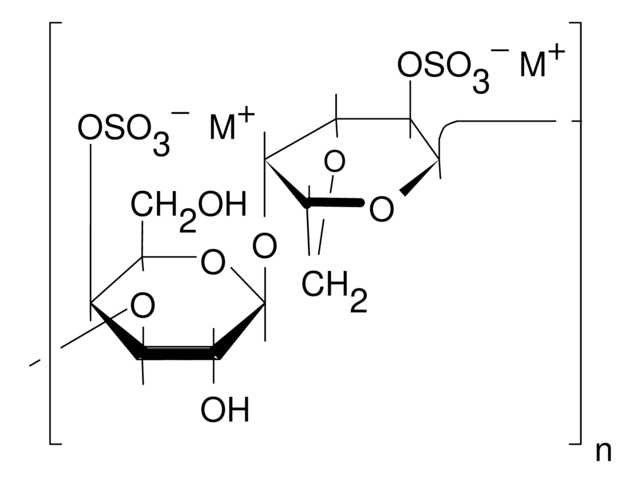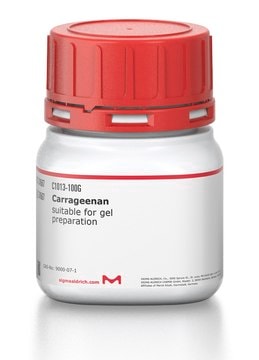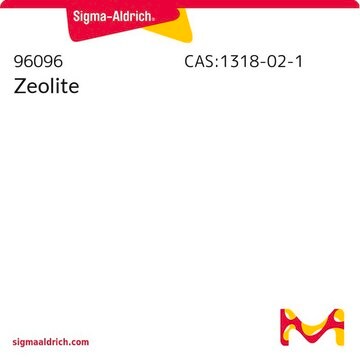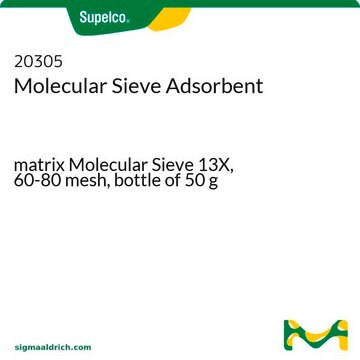22048
κ-Carrageenan
sulfated plant polysaccharide
Synonym(s):
Vegetable gelatin
About This Item
Recommended Products
biological source
plant
Quality Level
form
powder
color
white to off-white
viscosity
5-25 mPa.s, 0.3 % in H2O(25 °C)
solubility
H2O: soluble 5 mg/mL (hot)
InChI
1S/C24H38O25S2/c25-1-5-14(48-50(33,34)35)9(27)10(28)22(42-5)45-16-8-4-40-19(16)12(30)23(44-8)47-20-13(31)24(43-6(2-26)17(20)49-51(36,37)38)46-15-7-3-39-18(15)11(29)21(32)41-7/h5-32H,1-4H2,(H,33,34,35)(H,36,37,38)/p-2/t5-,6-,7-,8-,9-,10-,11-,12-,13-,14+,15+,16+,17+,18-,19-,20-,21+,22+,23-,24+/m1/s1
InChI key
ZNOZWUKQPJXOIG-XSBHQQIPSA-L
Looking for similar products? Visit Product Comparison Guide
General description
Application
Other Notes
Storage Class Code
11 - Combustible Solids
WGK
WGK 2
Flash Point(F)
Not applicable
Flash Point(C)
Not applicable
Certificates of Analysis (COA)
Search for Certificates of Analysis (COA) by entering the products Lot/Batch Number. Lot and Batch Numbers can be found on a product’s label following the words ‘Lot’ or ‘Batch’.
Already Own This Product?
Find documentation for the products that you have recently purchased in the Document Library.
Our team of scientists has experience in all areas of research including Life Science, Material Science, Chemical Synthesis, Chromatography, Analytical and many others.
Contact Technical Service

![Poly[(R)-3-hydroxybutyric acid] natural origin](/deepweb/assets/sigmaaldrich/product/structures/129/476/7d1c924b-f644-4889-a2d6-d7a923ce382c/640/7d1c924b-f644-4889-a2d6-d7a923ce382c.png)






